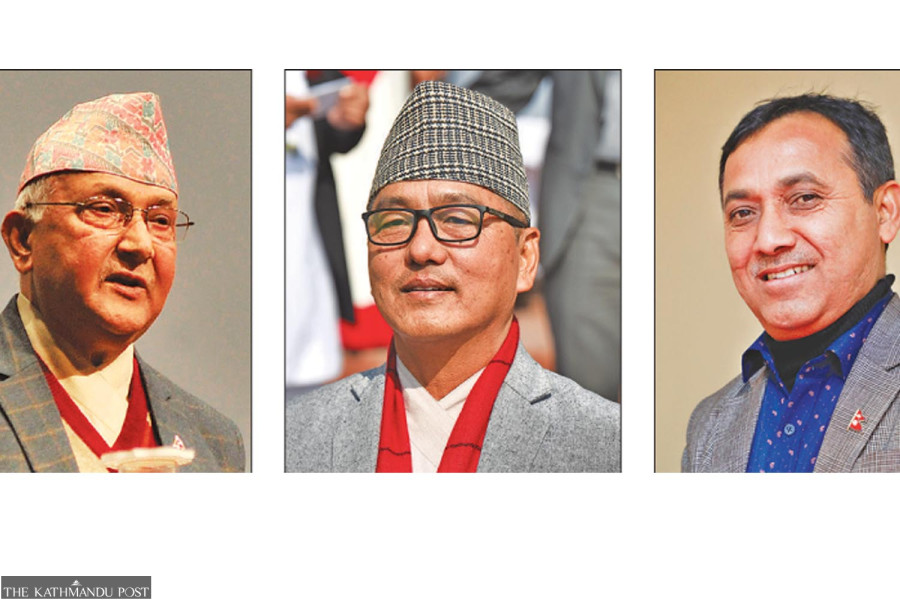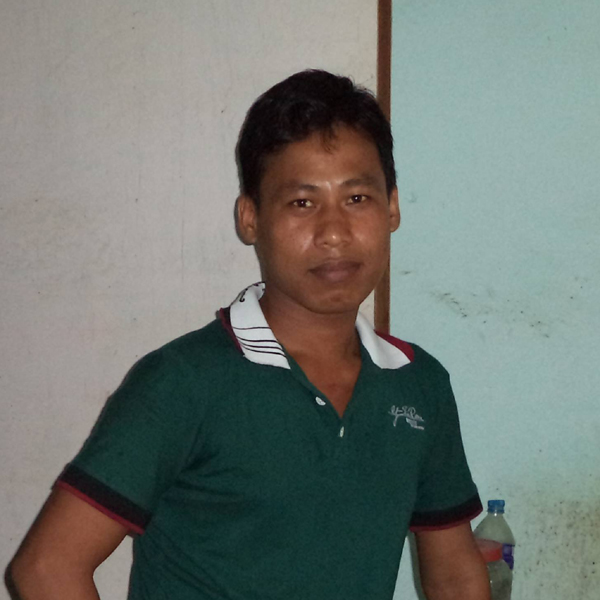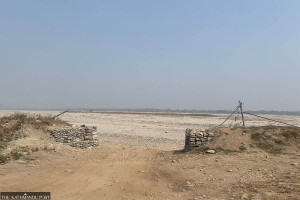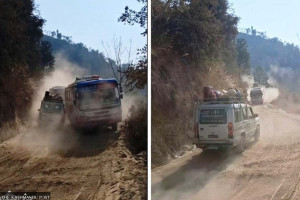Koshi Province
Jhapa has turned into ‘power centre’ of national politics
The eastern district is now what Biratnagar used to be between 1990 and 2010.
Arjun Rajbanshi & Deo Narayan Sah
There was a time when strategies on the formation and dissolution of governments at Singha Durbar, the country’s administrative headquarters, were made hundreds of kilometres away in Biratnagar, Morang, the home district of Nepali Congress paramount leaders BP Koirala and Girija Prasad Koirala.
Political remarks expressed in Biratnagar, the headquarters of the influential Koirala dynasty, created ripples in national politics in Kathmandu. After the restoration of democracy in 1990, Biratnagar was the ‘power centre’ of Nepali politics for two decades until the demise of Congress chief Girija Prasad in 2010.
Today the ‘power centre’ has shifted to Jhapa, an eastern Tarai district. Jhapa in Province 1 has turned into what Biratnagar used to be, courtesy of the politicians from Jhapa who hold dominant positions in national as well as provincial politics.
The November 20 elections clearly show that national politics and power play are now in the grips of Jhapa leaders.
KP Sharma Oli, an all-powerful chairman of the CPN-UML, is from Jhapa. Due to his political strategies, the Nepali Congress (NC)—the largest party in the House of Representatives—has been relegated to opposition benches. Rajendra Lingden, the central chairman of the Rastriya Prajatantra Party (RPP) which strongly advocates reinstating monarchy and declaring Nepal a Hindu state again, is also from Jhapa. The RPP is now a coalition partner of the federal government led by Pushpa Kamal Dahal.
Bishwa Prakash Sharma, an NC general secretary who has been advocating a shift in the Congress leadership to the younger generation, is also from Jhapa. Despite their defeat in the November 20 polls, NC leader Krishna Prasad Sitaula and UML leader Agni Kharel, both of whom are from Jhapa, are influential in the party.
“The influence of Jhapa in national politics and governance increased significantly after the restoration of democracy in the country. It is now at its pinnacle. Jhapa has become the centre of the country’s power and politics for quite a while now,” said Lila Udasi, a senior advocate.
“Jhapa was nowhere in national politics during the [pre-1990] Panchayat era. There was not even a single minister from Jhapa during the Panchayat system. But after the restoration of democracy in 1990, Jhapa leaders became prime ministers and ministers. The chiefs of two major political forces and a general secretary of the old democratic party are from Jhapa.”
Jhapa has a dominant position in provincial politics as well. As many as 20 members of the 93-member provincial assembly are from Jhapa. Six political parties represented in the Province 1 Assembly and the provincial assembly leaders of three major parties are also from Jhapa.
Hikmat Karki of the UML, the largest party in the provincial assembly, Uddhav Thapa of the main opposition Nepali Congress and Bhakti Prasad Sitaula of the RPP were elected as provincial assembly leaders of their respective parties. Karki will shortly be elected chief minister if Province 1 falls in the share of the UML in the power-sharing deal among the ruling parties. Provincial chiefs of the UML, the NC and the RPP are also from Jhapa.
However, despite being the centre of political activities, Jhapa has not seen the desired progress in terms of development, locals complain. The district lags behind in development despite having its leaders in influential positions in national politics. Floods and inundation are the major problems faced by the locals every year and electricity is yet to reach several settlements.
During the rainy season, some villages across the Mechi river get disconnected from other parts of the district for about five months due to the lack of bridges. Mechi Hospital, the only government hospital in Jhapa, is unable to offer quality health services due to the shortage of human resources and a lack of physical infrastructure and equipment.
“Though there are many powerful leaders representing Jhapa, common people like me are yet to feel the change. The road in our settlement is in a poor state and nothing has been done about it yet,” said Bhim Rajbanshi, a resident of Phulbari in Bahradashi Rural Municipality-5. “The leaders mainly focus on gaining power but ignore the difficulties faced by the common people.”




 8.79°C Kathmandu
8.79°C Kathmandu
-(1).jpg)











